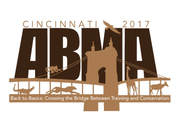Monday Abstracts
Strengthening Connections between
|
Thinking outside the Shell
|
Mariana Fruit Dove:
|
Positive Reinforcement Training
|
Use of Fission-Fusion to Decrease Aggression in a Family Group of
|
The Watering w"Hole" Experience:
|
Senior Living:
|
Let's Get Physical: Physical Therapy Training for Two Otters with Metabolic Bone Disease
Full Abstract
In 2016, the Downtown Aquarium Denver received 0.2 North American river otter pups. These pups were orphaned from their mother at only a few weeks old. As they grew, their gait was observed as abnormal. After labs and X-rays, it was determined that they were suffering from metabolic bone disease. Once the otters arrived in our care, we began to format their care to allow them properly heal and grow.We began working with an animal physical therapist and orthopedic surgeon veterinarian. We devised various exercises that would strengthen their muscles, thus helping their bones grow stronger and straighter. We trained exercises to support their legs in a ñnormalî position, strengthen core muscles and teach them to pull their legs from a splayed position to an upright position.We currently train them six times a day on their physical therapy circuit. All the training is done through free contact. We train them to run a treadmill, pivots, back up, run in a chute and wobble logs. We are also training medical behaviors to assist with their immobilizations for X-rays. These include voluntary injection and voluntary inhalation of anesthesia. Each subsequent X-ray we take shows more bone density and the bones are correcting by growing straighter. We are learning more about their conformation at each immobilization and that allows us to create exercises tailored precisely to their needs. Their physical therapy elevates cooperate healthcare training to a whole new level of preventative and medical management for our otters. Back to Basics:
|
Every Successful Bridge
|

